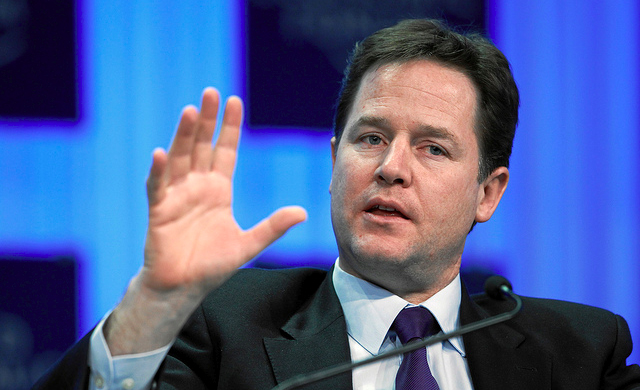UK Deputy Prime Minister calls for greater regional growth and for government to stop being “bewitched” by the City.

Nick Clegg has said the UK economy needs to stop propping “up a nation of 100,000 square miles on the profits of just a single square mile”. Speaking at the Mansion House, Mr Clegg said the UK’s focus on the City of London had led to an economic imbalance between the South East and other regions of the country.
Arguing that previous government’s had “recycled and redistributed City of London tax receipts to other parts of the country through the long arm of Whitehall” the Deputy Prime Minister said that “in doing so they took the easy route: expanding the public sector in the North, paid for by the private sector in the South. Emasculating the North and overburdening the South”.
Whilst raising the issue of the UK’s reliance on the City, Mr Clegg argued that the country’s economic hub still had a role to play in spreading economic growth saying that growth “outside the capital strengthens London too” and “burgeoning private sectors” are the City’s “trading partners and their breakthroughs are your gains”.
Highlighting the role politics has played in the country’s economic imbalance the Liberal Democrat leader went on to say that “From the big bang right until what was a monumental crash, the Labour and Conservative governments of the day were so bewitched by London’s financial services that they squandered other industries and allowed other communities to wither”.
Calling instead for a new two-tier economy, similar to that which exists in the United States, Germany and India and which used to operate in the UK, Mr Clegg argued that the “most successful economies are driven not just by their capitals, but by multiple thriving centres”.
Citing the example of Germany the Deputy Prime Minister said that whilst “Munich is an economic powerhouse; Frankfurt a financial centre; the Rhur, a cluster of industrial cities; Berlin is the country’s creative heart” in Britain “the debate on the UK’s economy has been cast too narrowly. The focus has been almost exclusively on London-based services as the principal source of UK growth”.

 Hot Features
Hot Features













